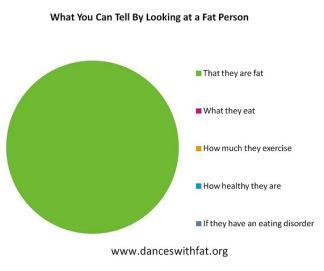 A recent study looked at he public’s willingness to accept legal strategies when it comes to public health interventions found that:
A recent study looked at he public’s willingness to accept legal strategies when it comes to public health interventions found that:
There was much support for strategies that enable people to exercise healthful choices—for example, menu labeling and improving access to nicotine patches—but considerably less for more coercive measures, such as insurance premium surcharges. These findings suggest that the least coercive path will be the smoothest and that support for interventions may be widespread among different social groups. In addition, the findings underscore the need for policy makers to involve the public in decision making, understand the public’s values, and communicate how policy decisions reflect this understanding.
I have a number of concerns around this, but first and foremost I think that we need to be sure that public health is about making information and options available to the public, while taking care not to make the individual’s health the public’s business. When we reward and punish people for “health” and “healthy behaviors” we create an environment that ignores the complexities of health, dis/ability, and individual circumstances creating an environment of shame and blame that are the precise opposite of the goals of public health. It also encourages people to deputize themselves into the “health police” which only serves to exacerbate these issues since, like drivers who think that everyone who drives more slowly is an idiot and everyone who drives faster is a maniac but their driving is perfect, these people tend to suggest that “their” health practice is “Juuuuuust right.”
Before we break this down let’s look at some of the premises of this study. The first issue is the danger of taking a vote on how we treat people in public health. I’m not saying that studies like this shouldn’t be done, but I think we should be careful of how we interpret the results. Public support for public health measures is not the same thing as evidence-based public health and even if 99% of people supported charging people more for health insurance based on how they look, that still wouldn’t make it right. The other questionable premise is the fact that this study mentions a study from 2000 that showed the nation’s three leading causes of death to be tobacco use, poor diet and physical inactivity, and alcohol consumption.
I’ve not read that study so I don’t have a comment on the findings, but it is important to note that poor diet and physical inactivity are NOT the same thing as being fat/obesity, though the interpretations of the public health methods study seem to readily conflate the two which always brings scientific rigor into question. Body size is not a behavior or a set of behaviors, it is not a diagnosis, it is not a disease. This kind of thinking does a disservice to fat people by promoting weight stigma and suggesting that one cannot have a healthy diet and be physically active while still being fat which is demonstrably incorrect. It also does a disservice to thin people suggesting that if you are thin your diet must be “healthy” and you must be doing the “correct” amount of physical activity which is also demonstrably untrue and dangerously misleading. Public health interventions that are focused on body size are extremely problematic and wholly unnecessary to an actual conversation about public health. We’ve already talked about that.
I think it’s fine to present people with information (including the evidence to back it up and the limitations thereof) and I think it’s fine to work hard to give people access to options like the foods they choose to eat, movement options that are both physically and psychologically safe, and affordable evidence-based healthcare. I think that we should do that while being fiercely anti-shame in all of our messaging and remembering that nobody owes anyone else “health” or “healthy habits” by their definition or any other, that health is multi-dimensional, complicated, and not entirely within our control, that the rights to life, liberty and the pursuit of happiness are inalienable and not size, health, or healthy habit dependent, and that nobody is obligated to choose to try for the longest life and ideally public health should be about giving everyone the same access to information and options and then allowing them to make their own choices.
Like the blog? Here’s more of my stuff:
Become a member: Keep this blog ad-free, support the activism work I do, and get deals from cool businesses Click here for details
The Book: Fat: The Owner’s Manual The E-Book is Name Your Own Price! Click here for details
Dance Class DVDs: Buy the Dance Class DVDs – Every Body Dance Now! Click here for details
